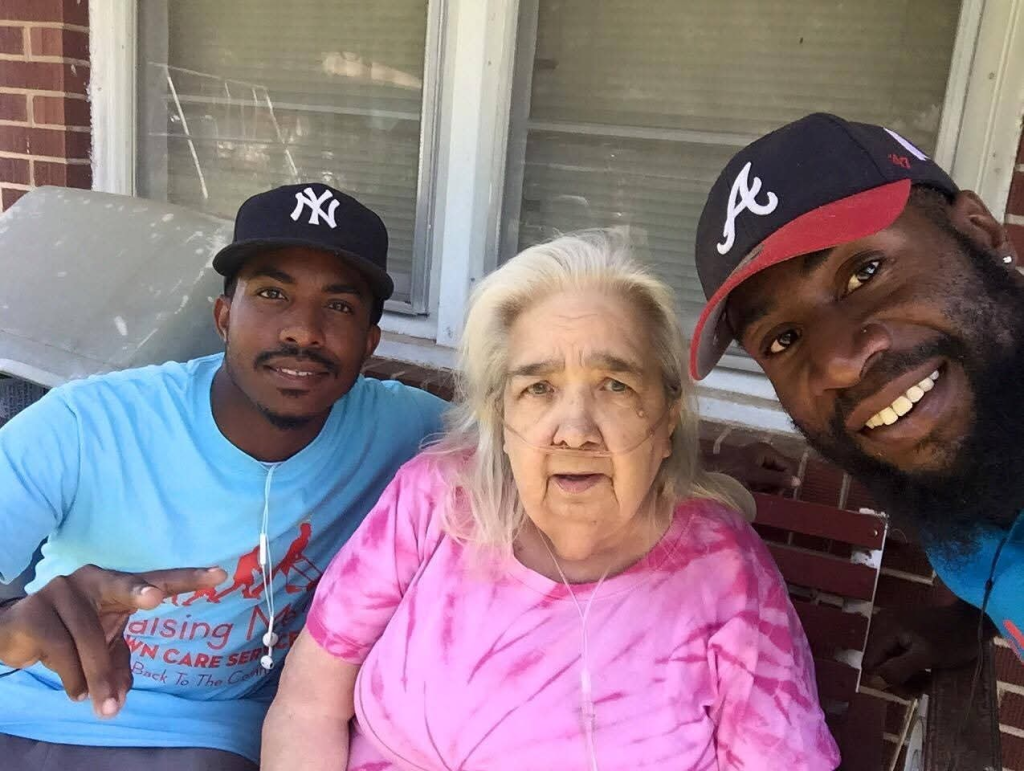It was a deceptively ordinary day when we pulled up in front of her house. The sun was already warm, but not too hot; the world carried on as usual—except for the heaviness in the air you couldn’t quite see at first.
She’d just been discharged from the hospital, hobbling a bit but still upright—still fighting. On a fixed income now, meaning every dollar had to stretch further than before. Medicine, groceries, bills—there was no room left for extras, let alone yard work.
She told us about her neighbor—how he had begun charging her to cut her grass. Not just helping out, but asking for payment. Then the harassment started—asking for money that she simply didn’t have, making demands, pressing. Every time someone walked by, she flinched a little, burdened by “I owe,” “I must pay,” and “When will this cost more than I can give?”
When we heard her story, something in all of us paused. Because we knew this wasn’t just about grass. It was about dignity. It was about breathing just a little easier. It was about when a person who’s weak with illness or financial strain can still lay their head down at night without the weight of something else crushing the last bit of strength they have.

Our team—Raising Men Lawn Care Service—decided right then: this stops now. No more payments. No more harassment. From now on, we will come to her yard every two weeks and take care of everything: mowing, trimming, cleaning—every single thing she can’t manage herself. And yes, completely free.
Because here’s the thing: kindness doesn’t cost the person giving—it costs nothing to show up, to help, to respect someone’s battle. But it means everything to the person receiving.
We pushed back the mower, sharpened the blades, pulled weeds, brushed away fallen leaves. We made sure she could sit, perhaps with a cup of tea, and see her yard not as a reminder of worry—but as a place with calm, where someone else had handled the work. Where her mental load could rest, if only briefly.
She smiled. Maybe she cried. We don’t always know what small mercies mean, until we give them. Because for her, what we did wasn’t about the lawn. It was about knowing someone saw her struggle and acted.
It’s more than just yard work. It’s about community. It’s about doing what’s right, when it’s easy to walk past. We are making a difference. Because when we help someone carry their load, they can use their limited resources on what truly matters—medication, meals, rest.
So yes, today we cut grass. But we also cut through shame. We trimmed back worry. And we planted hope.